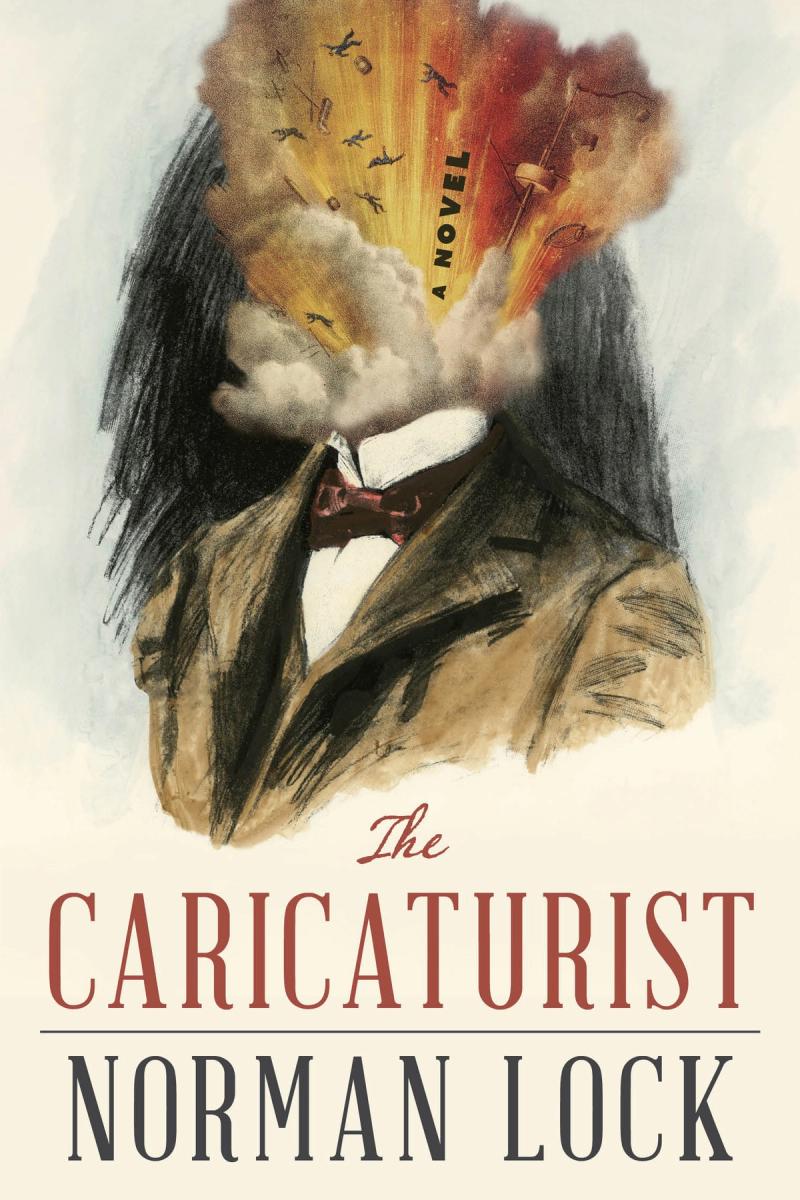Captivating and energetic. . . . The Caricaturist rollicks through a turbulent American epoch via an artist’s coming-of-age.
The Caricaturist
Oliver Fischer, a self-styled bohemian, boardwalk caricaturist, and student at the Pennsylvania Academy of the Fine Arts, enrages his banker father and earns the contempt of Philadelphia’s foremost realist painter Thomas Eakins when he attempts to stage Manet’s scandalous painting The Luncheon on the Grass. Soon after, he is ensnarled, along with Mark Twain and Andrew Carnegie, in a clash between the Anti-Imperialist League and their expansionist foes. Sent to Key West to sketch the 1898 American invasion of Cuba, in company with war correspondent Stephen Crane, he realizes––in the flash of a naval bombardment––that our lives are suspended by a thread between radiance and annihilation.
The Caricaturist, the penultimate, stand-alone book in The American Novels series, is a tragicomic portrait of America struggling to honor its most-cherished ideals at the dawn of the twentieth century.
Big Other Book Award Finalist
Historical Novels Review “Editors’ Choice” selection
Shelf Unbound “Recommended Reading” selection
Foreword Reviews “Book of the Day” selection
Literary Hub “New Books” selection

Ebook
- ISBN
- 9781954276284
Paperback
- ISBN
- 9781954276277
Norman Lock shares the story behind The Caricaturist and his American Novels cycle with Foreword Reviews.
Preview The Caricaturist in Shelf Unbound and watch Norman Lock read from the novel for the Big Other Book Awards.
Norman Lock is the award-winning author of the dozen volumes in The American Novels series, as well as other novels, short fiction, poetry, and stage and radio plays. He has won The Dactyl Foundation Literary Fiction Award, The Paris Review Aga Khan Prize for Fiction, and has been longlisted twice for the Joyce Carol Oates Prize. He has also received writing fellowships from the New Jersey State Council on the Arts, the Pennsylvania Council on the Arts, and the National Endowment for the Arts. He lives in Aberdeen, New Jersey.
visit author page »Praise for The Caricaturist
Lock is not writing history, but his fiction acts as a sort of carapace around actual events and historical figures, showing how a Twain or Crane appear from the protagonist’s perspective. . . . Oliver Fischer does not become another Crane, but without Crane’s fortitude in covering wars and the urban down-and-out, Oliver could not embark on a quest that his unconventional father cannot fathom.
Norman Lock has already presented us with an engaging series of stand-alone historical reveals unlike any other writer’s work that I’ve seen. . . . [He] has an amazing literary gift and I am so grateful he has chosen to share it with us through his writing!
— Linda Bond, Auntie’s Bookstore (Spokane, WA)

